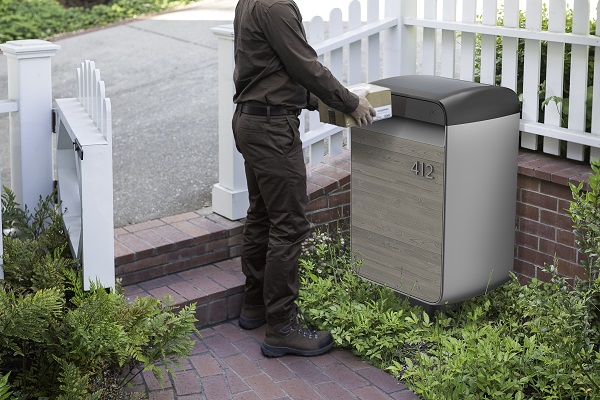US accelerators taking African-run start-ups more seriously
US accelerators taking African-run start-ups more seriously

Major global accelerators, especially those based in Silicon Valley, are taking start-ups run by Africans much more seriously as they identify the abilities of young entrepreneurs from the continent.
This is according to Kela Ivonye, the Nigerian co-founder of Kentucky-based company MailHaven. After moving to the United States (US) at the age of 18 for school, Ivonye started his company, which has developed an electronic mailbox that helps suburban homeowners secure and monitor their deliveries.
The MailHaven device does this without the need for wired power or home Wi-Fi. Ivonye said the startup is solving what is a US$40 billion problem of stolen packages and missed deliveries with a device that can receive packages on behalf of homeowners.
"We have a standalone package tracking app for online shoppers to alert them when their packages are out for delivery or have been delivered," he said.
The startup received a major boost last week when it was selected, alongside Nigeria-based companies Fyodor Biotechnologies and Mobile Forms as well as 33 other companies from around the world, for the renowned Silicon Valley-based accelerator 500 Startups.
Over the course of the four-month programme, for which only 2% of applicants make the cut, MailHaven will receive workspace, mentorship and access to the 500 Startups network. It will also receive US$150,000 in seed funding.
Ivonye interviewed with 500 Startups two years ago as a single founder running an on-demand delivery startup, but was unsuccessful. This time, however, he has made the grade.
"It means a lot to get into 500 Startups, we are the first Kentucky-based startup to get in. The credibility, funding and expertise in growth is very helpful, and gives us an edge. More doors are opening for us because of this," he said.
Support from 500 Startups is welcome, as MailHaven has been on a steep learning curve.
"It has been a challenge because it's an entirely new market and we have had to answer most questions ourselves with not a lot to reference from," Ivonye said. "We have tested several business models and it took a year to arrive at the one that resonates the most with consumers and couriers."
Fundraising has also been an issue, as it often is for hardware startups, but Ivonye is optimistic about MailHaven's value proposition and confident raising will become easier with 500 Startups' support.
African startups have proven increasingly popular with the renowned accelerator over the last couple of years, with the two Nigeria-based startups selected this time following others from the country as well as from South Africa, Egypt and Ghana in being selected in recent cohorts.
Ivonye believes they are taking African startups very seriously, and with good reason.
"Africa, Nigeria in particular, is an emerging market with the population, wealth and young intellectuals needed to have a thriving startup ecosystem for wealth and value creation," he said.
"There are still missing pieces around infrastructure and startup capital, however getting in early matters and I see them diligently taking risks in these startups."
For MailHaven, initially launched in March of last year, it is all about growth. The startup has so far deployed six units in the field, and will deploy up to another 50 in November.
"We have hundreds of people using our tracking app which is currently in beta," Ivonye said.
"It's been challenging as we are building hardware that does not scale as quickly as software and requires a good amount of capital. Also we are in a nascent market, which brings its fair share of sceptics. However we are motivated to solve this problem and the e-commerce and grocery delivery market has been making moves over the last 18 months that validate our need and value proposition."
And does he have plans to take his innovative business to Africa?
"The software portion is something we believe can provide value before hardware in African metropolitan cities as shipping infrastructure and online purchases mature," he said.
"We'd like to do that when the need arises and the timing is right, but for now we are focused on the North American market, which is huge."